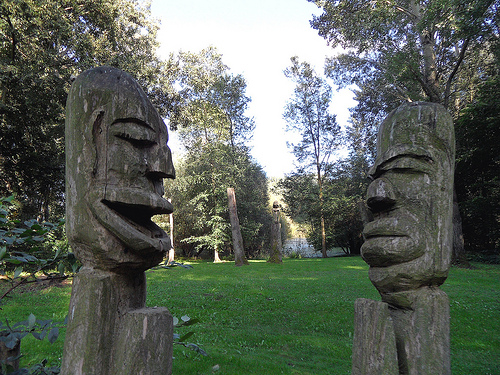To make this a century of dialogue we need to find ways to promote a greater awareness of the oneness of humanity. – Dalai Lama
What does that mean?
To me, this quote means that before we can have peace, before we can end strife, before we can solve all of the problems this world of ours faces, first we must be able to talk to one another. The first portion of the quote mentions this by pointing out our need for discussion, and to make this a century of dialog.
Once we have advanced to a point where we can discuss the problems of the world, or of individual nations, only then can we begin to find workable solutions. But how do we get to the point where we can hold such a dialog with each-other? How do we build the necessary trust and confidence?
The quote gives us an idea. We need, it says, to find ways to raise the awareness of the world that we are all one people, we are humanity. Without this oneness, people with different shaped eyes, noses, or ears will distrust each-other. People of different skin color, religions, or ethnic backgrounds will be suspect.
Why is unity important?
We only have one planet, for the moment. All of our eggs are in one basket. With recent events in the news about North Korea threatening to unleash global nuclear war, this point is driven home even more forcefully than usual. The First World War was started with a pistol, now we’re talking about nukes.
While there will always be people who don’t play well with others, the rest of us need to begin trying to understand others. That doesn’t mean agree with them, for there will always be differences in our interests, but I believe we need to start listening.
By trying to listen and find out what they need, desire or want, we can begin to understand their point of view. Hopefully they will do the same. However, like any negotiation, not everyone will play fairly or be reasonable (by our definition).
We won’t get to Utopia any time soon, but if we can start talking and begin to understand each-other, we can begin to find solutions which can help improve our chances of seeing the dawn of the next century.
Where can I apply this in my life?
Unless you’re a player on the world stage, there is very little you can do to directly change how things work. However, we all have family and friends, and we can start there. Then we can work our way out to our acquaintances, and eventually to strangers.
Please note that none of this implies caving in to the demands of anyone else, nor does it mean talking to other people about meaningless things. When you get to the point of talking to strangers, talk to the person down the street about something related to the neighborhood, or talk to a co-worker about something relating to what you are working on.
Starting with our family and friends, who do you feel estranged from on a topic? We all have family members or friends with whom we have a disagreement on at least one topic. You might even have ‘discussed’ it with them. But have you really listened?
How hard did you try to see things from their view point? No jokes about rectal-cranial inversions, please. Most of us, when pretending to listen, are actually plotting our counter attack. That’s not going to help you understand them, is it? Once you master listening, you are on the verge of comprehension.
To understand where a person is coming from, to understand why they believe what they do, you have to comprehend what they are saying. Sometimes it’s hard, especially if the other person hasn’t really thought things through. But until we comprehend their points, our arguments against them will fall on deaf ears.
If you disagree with someone, but you can’t help them to understand why they need to re-think their position, you probably have yet to comprehend them. We will only be able to make our point when we can convince them that one (or more) of their foundational ‘facts’ or beliefs are flawed.
If you haven’t discussed the topic in sufficient depth to comprehend them, you’ll never find these foundational concepts, much less convince them to examine them more closely. Does that make sense to you? Can you think of a time when you actually did this, even if by accident?
By having true dialog, by actually explaining to them your point of view and the underlying reasons, facts, and beliefs, you can help them comprehend you, and vice-versa. This level of mutual comprehension will help them to understand that we are one people, even if we disagree.
Take some time and think about who you might talk to in the next few days, and how you can help them understand why you have the position you have. And also consider how you will get them to explain why they have the position they have.
Trying not to counter-attack, and to keep things calm and open can be a challenge, but it should lead you to a deeper understanding of the other person, and they of you. And that’s the first step to becoming aware of the oneness of humanity.
From: Twitter, @DalaiLama
confirmed at : it’s his own feed…
Photo by onnola

